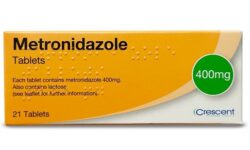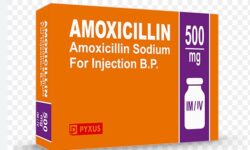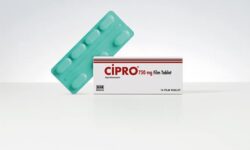Benefits of Meaningful Use
In today’s rapidly evolving healthcare landscape, it is crucial to embrace technological advancements that not only improve patient care and outcomes but also enhance the overall efficiency and productivity of healthcare systems. Meaningful Use, a program introduced by the government, has played a significant role in revolutionizing the healthcare industry. In this blog post, we will explore the numerous benefits of Meaningful Use, including increased efficiency and productivity, enhanced communication and coordination, and greater data accuracy and accessibility. By embracing Meaningful Use, healthcare providers can elevate the quality of care they provide, ultimately leading to improved patient outcomes.
Improved Patient Care And Outcomes
When it comes to providing healthcare services, the ultimate goal is always to achieve improved patient care and better outcomes. This can be achieved through a variety of strategies and initiatives aimed at enhancing the overall quality of care provided to patients. In this blog post, we will explore some of the key benefits of meaningful use in healthcare and how it can contribute to improved patient care and outcomes.
One of the primary benefits of meaningful use in healthcare is the ability to optimize and streamline clinical processes. By implementing electronic health records (EHRs) and other health IT systems, healthcare providers can eliminate the need for manual paperwork and improve the efficiency of their workflows. This not only saves time and resources but also reduces the risk of errors and improves the accuracy of clinical documentation.
Another important aspect of meaningful use is the increased accessibility and availability of patient information. With electronic health records, healthcare providers can easily access and share patient data, enabling better collaboration and coordination among healthcare teams. This seamless exchange of information ensures that all care providers are on the same page, leading to more effective and coordinated care for patients.
- Improved patient care and outcomes
- Benefits of meaningful use in healthcare
- Increased efficiency and productivity
- Enhanced communication and coordination
- Greater data accuracy and accessibility
| Benefits of Meaningful Use in Healthcare |
|---|
| Improved Patient Care and Outcomes |
| Increased Efficiency and Productivity |
| Enhanced Communication and Coordination |
| Greater Data Accuracy and Accessibility |
Furthermore, meaningful use promotes evidence-based medicine. By integrating clinical decision support tools into EHRs, healthcare providers can access up-to-date clinical guidelines and best practices, ensuring that their care decisions are based on the latest research and evidence. This helps improve the quality of care delivered to patients and reduces variations in treatment approaches.
Lastly, meaningful use also contributes to patient engagement and empowerment. Through patient portals and secure messaging systems, patients can actively participate in their healthcare journey. They can access their health records, communicate with their healthcare providers, schedule appointments, and even receive educational materials. This increased engagement not only improves patient satisfaction but also has a positive impact on patient outcomes.
Benefits of Meaningful Use in Healthcare
Meaningful use is a term that refers to the use of certified electronic health record (EHR) technology to improve the quality, safety, and efficiency of healthcare. It is a program initiated by the Centers for Medicare and Medicaid Services (CMS) in the United States. The program aims to encourage healthcare providers to adopt and effectively use EHRs to achieve specific objectives and ultimately improve patient care. In this blog post, we will explore some of the key benefits of meaningful use in healthcare.
One of the primary benefits of meaningful use is improved patient care and outcomes. By implementing EHRs, healthcare providers can enhance their ability to access and share patient information, leading to more efficient and coordinated care. With EHRs, providers can easily view a patient’s medical history, including diagnoses, medications, allergies, and lab results. This comprehensive view of patient data allows healthcare professionals to make informed decisions and provide personalized treatment plans, ultimately leading to better health outcomes for patients.
Another important benefit of meaningful use in healthcare is increased efficiency and productivity. EHRs streamline the documentation and administrative processes, reducing the time spent on paperwork and allowing healthcare providers to focus more on patient care. Automated features, such as electronic prescribing and clinical decision support, can help prevent medication errors and improve treatment accuracy. Moreover, EHRs enable faster information retrieval, eliminating the need for manual record searches and ensuring critical data is always at the fingertips of healthcare professionals.
Enhanced communication and coordination among healthcare teams is yet another advantage of meaningful use. EHRs promote seamless sharing of patient information between different healthcare providers, ensuring that all members of the care team are up-to-date with the latest medical data. This improves care coordination, reduces unnecessary duplicate testing or procedures, and helps prevent medical errors. Effective communication and collaboration are vital in delivering high-quality healthcare, and meaningful use facilitates these essential aspects by providing a centralized platform for data exchange.
Increased Efficiency And Productivity
When it comes to healthcare, efficiency and productivity play a crucial role in ensuring that patients receive the best care possible. The implementation of Meaningful Use in healthcare has proven to be a game-changer, offering numerous benefits in terms of streamlining processes and enhancing overall efficiency within healthcare organizations.
One of the key benefits of Meaningful Use is the optimization of electronic health record (EHR) systems. By utilizing EHRs, healthcare providers can eliminate the need for paper records, reducing the risk of errors, and enabling faster access to patient information. This not only saves time but also enhances productivity as healthcare professionals can now focus more on patient care rather than time-consuming administrative tasks.
| Benefits of Meaningful Use in Healthcare |
|---|
| 1. Streamlined Workflow: Meaningful Use encourages the adoption of technology that automates various processes, facilitating a more streamlined workflow. This allows healthcare providers to efficiently manage tasks, prioritize patient needs, and allocate resources effectively. |
| 2. Real-Time Communication: With Meaningful Use, healthcare teams can communicate seamlessly through secure messaging and telehealth solutions, enabling instant communication and consultations. This not only saves time but also ensures better coordination between different healthcare providers involved in a patient’s care. |
| 3. Improved Decision-Making: The accessibility of comprehensive patient data provided by Meaningful Use allows healthcare professionals to make more informed decisions. Having instant access to a patient’s medical history, allergies, and previous treatments ensures that healthcare providers can deliver accurate and personalized care, leading to better outcomes. |
Another advantage of Meaningful Use is the integration of decision support tools. These tools can help healthcare providers in diagnosing diseases, prescribing medications, and recommending treatments based on evidence-based guidelines. This not only saves time but also avoids medical errors and ensures that patients receive the most effective treatments tailored to their specific conditions.
In conclusion, implementing Meaningful Use in healthcare brings significant benefits in terms of increased efficiency and productivity. From streamlined workflows to real-time communication and improved decision-making, the integration of technology and standardized practices enhances overall healthcare quality. By harnessing the power of Meaningful Use, healthcare providers can focus more on delivering excellent patient care while optimizing their operations.
Enhanced Communication And Coordination
The Importance of Enhanced Communication and Coordination in Healthcare
Enhanced communication and coordination play a crucial role in ensuring quality healthcare delivery. Effective communication among healthcare providers, patients, and other stakeholders is the key to successful treatment outcomes and patient satisfaction. It enables timely exchange of critical information, allows for seamless care transitions, and fosters collaborative decision-making.
One of the primary benefits of meaningful use in healthcare is improved communication. With the integration of electronic health record (EHR) systems, healthcare providers can communicate efficiently and securely. These systems facilitate real-time access to patient information, enabling clinicians to make informed decisions promptly. Additionally, EHRs allow for electronic communication between different healthcare providers involved in a patient’s care, ensuring coordination and continuity of treatment.
- Enhanced Coordination through Care Teams
Meaningful use in healthcare encourages the formation of care teams, comprising various healthcare professionals involved in a patient’s care, such as physicians, nurses, pharmacists, and social workers. By leveraging EHR systems’ capabilities, these care teams can collaborate effectively, share information, and coordinate care plans. This integrated approach ensures that all team members are up to date with the patient’s progress, avoiding duplication of tests or treatment.
| The Benefits of Enhanced Communication and Coordination in Healthcare |
|---|
| 1. Improved Patient Safety: Enhanced communication and coordination reduce the chances of medical errors, such as medication errors or misdiagnosis. Accurate and timely information sharing among caregivers provides a holistic view of the patient’s health, enabling better decision-making and ensuring patient safety. |
| 2. Efficient Care Delivery: Effective communication streamlines the workflow within healthcare organizations. It reduces the time spent on administrative tasks, such as phone calls or paper-based documentation, allowing more time for direct patient care. This increased efficiency results in improved productivity and shorter wait times for patients. |
| 3. Patient Engagement and Satisfaction: Enhanced communication allows for better engagement with patients and their families. By providing patients with access to their health records and enabling secure messaging with healthcare providers, patients feel more involved in their care. This involvement and improved communication lead to increased patient satisfaction. |
Greater Data Accuracy And Accessibility
Accurate and accessible data is crucial in the healthcare industry. It not only ensures smooth operations but also leads to better patient outcomes. The implementation of Meaningful Use in healthcare has greatly enhanced data accuracy and accessibility, resulting in various benefits for healthcare providers and patients alike.
Benefits of Meaningful Use
- Improved Quality of Care: One of the key benefits of Meaningful Use is the improved quality of care provided to patients. With accurate and accessible data, healthcare providers can make more informed decisions and provide timely interventions. This results in better patient outcomes and a higher standard of healthcare.
- Efficient Workflow: Meaningful Use promotes the use of electronic health records (EHRs), which streamline and automate various healthcare processes. This eliminates the need for manual documentation, reduces errors, and allows healthcare providers to access patient data quickly. As a result, workflow efficiency is significantly improved.
- Effective Communication and Coordination: With accurate and easily accessible data, healthcare providers can collaborate and communicate effectively. They can share patient information seamlessly, allowing for better coordination and continuity of care. This leads to more comprehensive and efficient healthcare delivery.
Data Accuracy and Accessibility:
| Accurate Data | Accessible Data |
|---|---|
| Ensures reliable and trustworthy information for healthcare decision-making. | Enables healthcare providers to access patient data anytime, anywhere. |
| Reduces errors and improves patient safety. | Facilitates continuity of care when patients transition between healthcare settings. |
| Allows for proper documentation and easier auditing of healthcare records. | Increases patient engagement through online portals and access to personal health information. |
In conclusion, the implementation of Meaningful Use in healthcare has resulted in greater data accuracy and accessibility. The benefits of this include improved quality of care, efficient workflow, and effective communication and coordination among healthcare providers. Accurate and accessible data not only enhances healthcare operations but also leads to better patient outcomes and experiences.
Frequently Asked Questions
Q1: What are the benefits of meaningful use in healthcare?
A1: Meaningful use in healthcare brings several benefits, including improved patient care and outcomes, increased efficiency and productivity, enhanced communication and coordination, and greater data accuracy and accessibility.
Q2: How does meaningful use improve patient care and outcomes?
A2: Meaningful use promotes the adoption and utilization of electronic health records (EHRs), which can improve patient care and outcomes by ensuring accurate and up-to-date patient information, facilitating secure communication between healthcare providers, and enabling better care coordination.
Q3: In what ways does meaningful use increase efficiency and productivity in healthcare?
A3: Meaningful use encourages the use of technology tools and processes that streamline healthcare workflows, automate administrative tasks, and reduce duplication of efforts, leading to increased efficiency and productivity for healthcare providers.
Q4: How does meaningful use enhance communication and coordination among healthcare providers?
A4: Meaningful use incentivizes the implementation of interoperable EHR systems that enable seamless sharing of patient information among different healthcare providers, resulting in improved communication, collaboration, and care coordination.
Q5: How does meaningful use contribute to greater data accuracy and accessibility?
A5: Meaningful use requires the use of standardized data formats and coding systems, ensuring consistency and accuracy in recording and exchanging patient data. It also promotes secure and easy access to patient information, allowing healthcare providers to make informed decisions and provide more personalized care.
Q6: What are the potential challenges in achieving meaningful use in healthcare?
A6: Some challenges in achieving meaningful use include the initial cost of implementing EHR systems, staff training and adoption of new technologies and workflows, ensuring data privacy and security, and addressing interoperability issues between different EHR systems.
Q7: How can healthcare organizations maximize the benefits of meaningful use?
A7: To maximize the benefits of meaningful use, healthcare organizations should invest in user-friendly and interoperable EHR systems, provide comprehensive training to their staff, regularly update and maintain their EHR systems, actively engage patients in their care, and continuously analyze and optimize their workflows based on meaningful use guidelines.



